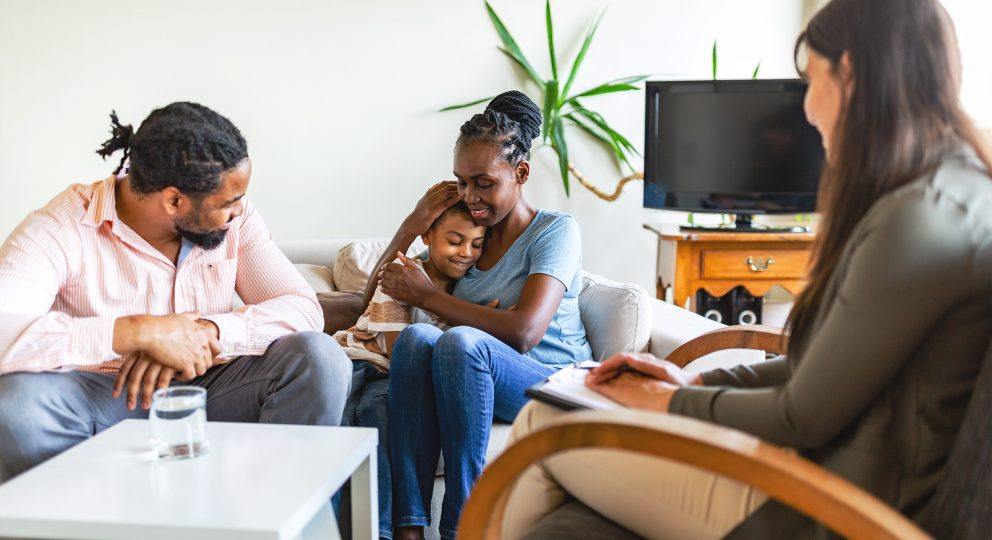As many people in LGBTQIA+ relationships know, it can be really hard when you have unsupportive families. Discrimination is hard when it’s coming from anyone but there is a specific source of pain when it comes from family. Familial relationships can be complicated. You may love each other deeply but disagree on many things. It can feel beyond belief when a family member doesn’t support who you are or the person you choose to be in a relationship with.
The unsupportive family member can have many different stages of dismissal. They may be making passive-aggressive comments or jokes, talking about it behind your back, or saying nasty hurtful things directly to you. There may also be certain reasons they don’t support you like spiritual or religious beliefs, stigmatization, or bigotry. None of the reasons make dealing with the lack of support any easier. It can be hard to feel understood when someone holds those beliefs.
How can you keep a lack of support from negatively affecting your relationship?
While you can’t control the unsupportive family, you can make sure your relationship doesn’t break because of it. Most importantly you and your partner will need to have open communication with each other. It’s helpful to process how you are feeling with each other and try to understand what the experience is like for each of you. Depending on whose family is unsupportive, the reactions can feel very different. Even though it may be extremely hurtful to you, you also need to understand what it feels like from your partner’s point of view.
When you talk about this, set aside some time when you can focus. Here are some tips for how to navigate it successfully:
- Try to listen to your partner and attune to their perspective. Put your feelings aside while you listen.
- Summarize your partner’s feelings and provide validation before sharing yours.
- Ask your partner questions to help deepen your understanding (e.g., Is there a story from childhood or coming out that relates to how you feel now? What is your fear in this situation? What do you need? What is your dream for our future as far as family?)
Once you both get a turn to talk and feel heard you can begin to work on problem-solving.
- Discuss what feelings and needs you have in common.
- Try to identify any core needs you must have to feel safe with family.
- Work together to decide how you can handle the situation where you both feel safe and have your core needs met.
It’s also important to focus on building the connection and fondness and admiration in your relationship when facing a lack of support from others. You don’t want others’ behaviors to affect things between you. Focusing on the positives in your relationship can make it feel easier to tackle external relationship stress. Try these ideas for keeping your connection strong:
- Practice expressing appreciation about each other and your relationship.
- Invest in daily rituals like partings and reunions to boost connection.
- Make time for weekly date nights where you do something fun and spend quality time together.
- Prioritize physical affection and the six-second kiss.
- Turn towards each other’s bids for connection.
- Build love maps by learning more about each other.
It can also be helpful to focus on the allies who support your relationship. Discuss the people in your life who are positive and respectful and spend more time with them.
How can you set healthy boundaries with others?
Boundaries are important in all relationships. It sets the parameters for feeling safe and respected by others. Once you identify both your partner’s and your needs, you can express them to your family, such as, “I need you to respect my choices and my partner by not using hate speech” or “I need you to stop making jokes about who I am because it makes me feel disrespected.” The other person always has a choice on following your boundaries. So think about what will happen if they can’t follow your boundaries. Often, although sad, sometimes the healthiest boundary can be cutting off a relationship.
When you are ready to have a conversation where you set boundaries, there are a few things you can do to prepare. Pick a good time for both parties to talk and preferably face to face. Let the other person know ahead of time you want to talk so they don’t feel attacked. Let them know what specific behaviors have been hurtful and how it has affected you. Explain in detail what the boundary is that you are asking for. Also, allow the other person to respond and share their feelings as well so they know you are listening. If they push back, hold firm in your boundary. If things get heated, you can suggest you take a break and come back to the conversation later.
Another great resource is always therapy. It can be helpful for you and your partner to discuss the issue and figure out your needs. At the same time, family therapy could involve everyone if all parties are willing.
Sign up for Gottman Love Notes
Gottman Love Notes is a research-based newsletter featuring the latest and greatest from The Gottman Institute. Whether you’re new to Gottman or a big fan, we believe that you’ll find something interesting, relevant, or refreshing in the content that is featured in each issue of Love Notes.
Get the latest on relationships, parenting, therapy and more, from the experts at The Gottman Institute. Includes a free download every month.









